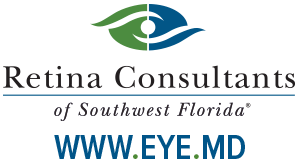FAQs
Why do I need a retina specialist?
Chances are you were referred to a retina specialist by your general eye doctor. Your eye is an organ that has many different parts that must work together in order for you to see. Every part of the eye must be functioning properly to have strong vision as a result. Each part is extremely delicate and can have thousands of complications. The retina is one of these parts and is made up of hundreds of other parts. Retina evaluation, treatment, and surgery require highly specialized equipment and fellowship trained retina doctors for the best results.
Your general eye doctor has undergone medical training for general eye care, such as evaluating the need for glasses and common disorders, such as cataracts. A fellowship-trained retina specialist has undergone years of specialized retina training in addition to general medical and eye care training. When choosing a retina specialist, it is important to make sure he or she has had the appropriate fellowship retina training to make sure you receive the best retina care possible. More information regarding this can be found at http://www.asrs.org/patients/what-is-a-retina-specialist
If I’m seeing a retina specialist, do I need to see my general eye doctor?
Yes. Your retina specialist is focused on evaluation and treatment of your retina disorder only. Your ophthalmologist or optometrist is responsible for everything else that is eye care related.
Why do I have Macular Degeneration?
Macular Degeneration is typically an age-related disorder. It is the leading cause of blindness in Americans over the age of 60. There is some scientific evidence to suggest that there is a genetic component involved with Age-Related Macular Degeneration.
I have AMD, but not currently receiving treatment. Why do I need to come back?
Macular Degeneration can advance very quickly, and sometimes you may not notice a change in your vision. If you have a new problem with your Macular Degeneration that goes untreated, you may end up with permanent vision loss that could have been avoided with appropriate follow up. Your doctor has been specially trained to determine how often you should be examined.
Why can’t I just get a new pair of glasses to improve my vision?
Your eye functions just like a camera. Light enters the eye through your glasses, then through the cornea and lens (like the lens of a camera) then hits the retina (like the film in a camera). If you have bad film in your camera, it doesn’t matter how you focus your lenses, you will not get a good picture!
Can I get an eye transplant?
No. The eye is connected to the brain by the optic nerve. The optic nerve is made up of billions of tiny nerve fibers. If the optic nerve is severed, it cannot be reattached or transplanted at this time. The cornea is the only part of the eye that can be transplanted.
Why is it important to keep my blood pressure under control?
Over time, high blood pressure damages the blood vessels in your body, including the blood vessels that are responsible for carrying nutrients and waste products to and from the retina. Damaged blood vessels or extreme changes in blood pressure can cause complications such as macular swelling, fluid leakage out of the vessel walls, abnormal blood vessel growth, and blood vessel blockages such as Central Retinal or Branch Retinal Vein Occlusions, If these conditions occur, decreased vision, and even blindness can result.
Why does diabetes affect my vision?
Diabetes can affect the blood vessels in your eye very similar to how high blood pressure affects blood vessels. Diabetes can damage the blood vessels in the retina. This is called Diabetic Retinopathy. Complications such as macular swelling, fluid leakage out of the vessel walls, and abnormal blood vessel growth can occur. It is extremely important to manage your blood sugar and blood pressure if you are diabetic.
Do you have to take my eye out to do surgery?
No. Retinal surgery is performed without removing the eye.
Should I be wearing sunglasses?
Yes. While there is no evidence to suggest that sun exposure puts you at risk for retinal problems or complications, sun exposure can affect the natural lens in the eye. We believe that you should protect all parts of your eye.
